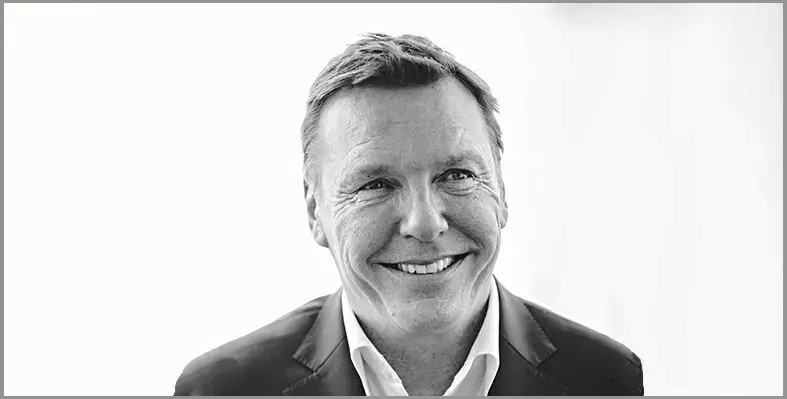Christopher Hudson, president of dmg events, discusses what we can look forward to at ADIPEC this year
How is ADIPEC, as a leading energy event, responding to the major shifts being seen across the global energy sector?
Energy is one of the world’s most dynamic and rapidly evolving sectors. According to the International Energy Agency (IEA), global energy demand rose by 2.2% last year, outpacing the average annual increase of 1.3% recorded over the last decade. At the same time, the global population is projected to reach 9.8bn by 2050, with over 750mn people still lacking access to electricity, and more than 2.1bn people remain without access to clean cooking. These figures underscore both the scale of the challenge and the opportunity before us.
In this context, ADIPEC 2025 is being held under the theme of ‘Energy. Intelligence. Impact’. It reflects a simple but powerful truth: meeting the world’s growing need for secure, affordable and sustainable energy will depend on how intelligently we harness every resource to deliver meaningful results for economies and communities alike.
At its core, the theme recognises that intelligence – both human and artificial – is transforming the way energy is produced, managed, and consumed. From AI-driven optimisation and digital integration to advances in hydrogen, LNG, and decarbonisation, intelligent innovation is reshaping the global energy landscape. ADIPEC serves as the meeting point for these forces, where ideas translate into action and impact can be measured in investment, policy, and progress.
As the organiser of ADIPEC, we work closely with governments and industry to ensure our event reflects these realities. ADIPEC, at its core, is designed to bring energy, intelligence, and innovation together, turning dialogue into delivery, and ambition into tangible progress.
Artificial intelligence (AI) has a big focus at ADIPEC this year. How is AI impacting the energy sector and how is ADIPEC helping to steer that impact positively?
On the back of rising AI integration, data centres' electricity consumption is projected to double by 2030, rising from 415 TWh to 945 TWh. At the same time, the World Economic Forum has estimated that AI can improve energy efficiency by up to 60% in certain applications, while the IEA says that AI-optimised energy systems can increase production efficiency by up to 20%. The complex trade-off between AI’s energy demand and energy production/savings, presents the energy sector with a unique opportunity to accelerate the shift toward cleaner energy sources while improving energy system productivity.
To harness AI’s potential sustainably, the industry must invest in energy-efficient infrastructure, prioritise low-impact models, and shift workloads to low-emissions data centres, like those powered by solar energy or small modular reactors. Simultaneously, AI can be used to optimise its own energy use, such as scheduling tasks based on grid carbon intensity.
Responding to the opportunities and challenges presented by AI, we have expanded our AI Zone into five experiential areas showcasing how AI is transforming systems, people, and infrastructure. Our AI Zone, which is nearly 40% bigger this year than last year, will also feature many leading AI companies, including Microsoft, Infosys, IBM, AIQ, Honeywell, Cognite, SUPCON, Geminus AI, and Gecko Robotics, among its 40-some exhibitors.
Alongside this, more than 80 conference sessions are dedicated to the AI–energy nexus, from predictive analytics to governance frameworks. Some of the already confirmed speakers include: Dr Najwa Aaraj, CEO, TII; Dr. Ahmed Mohamed Alebri, CEO, ADNOC Sour Gas; Patrick Bangert, VP& Chief of AI, Oxy; and Michael Sonderby, CEO, SteerAI.
With our timely AI-focused conference and exhibition offerings, ADIPEC will explore how AI transforms the global energy system for more secure, inclusive and sustainable outcomes.What impact do you hope ADIPEC 2025 to have on the world’s energy sector and its ongoing transformation?
ADIPEC 2025 offers a moment for industry leaders to focus on collective results, advancing secure, sustainable, and affordable energy that meets the needs of a growing global population.
One timely outcome that we hope ADIPEC helps advance for the global energy sector is enabling additional secure energy supply. Energy security and energy access for key industries, emerging markets, and communities are foundational for growth and development, supporting the livelihoods of billions and unlocking new avenues for innovation. But the energy industry is not immune to uncertainty, and today we find ourselves facing a multitude of competing priorities.
If the industry is to deliver on its mounting responsibilities and evolve to meet the needs of a world in perpetual change, it requires clarity and realism. While the necessity of decarbonisation is unquestionable and the appetite for energy has only increased, balancing these two realities cannot devolve into a debate between new and old, clean and carbon. Instead, we must come to terms with the complexity of modern demand and respond with pragmatism, using every tool and resource at our disposal to ensure the modern energy mix works for all. The answer that is becoming more obvious to energy leaders is to shift away from an energy transition towards energy addition, where our growing need for secure energy supply is met both by hydrocarbon energy and additional lower-carbon energy sources.
By convening all segments of the energy sector, including government, technology, finance, shipping, and infrastructure, ADIPEC facilitates the alignment, collaboration, and momentum the global energy sector needs to unlock finance and bring more energy online.
ADIPEC launched a new co-located Low Carbon & Chemicals Expo this year. What does that exhibition feature include and why is it timely?
Reflecting the industry’s transition towards a high-growth, lower-carbon future, the new Low Carbon & Chemicals Expo brings together companies driving innovation in hydrogen, ammonia, methanol, carbon capture, energy storage, chemicals, and clean energy. These sectors are essential to meeting rising global energy demand because they enable low-carbon solutions across power, transport, and industry.
Among the 100+ global companies confirmed to exhibit at the Expo are Topsoe, Excel International, Rittal, Vedanta Cairn and Veerum, jointly showcasing how cleaner fuels, advanced materials and circular solutions are unlocking the next wave of energy-driven prosperity.








